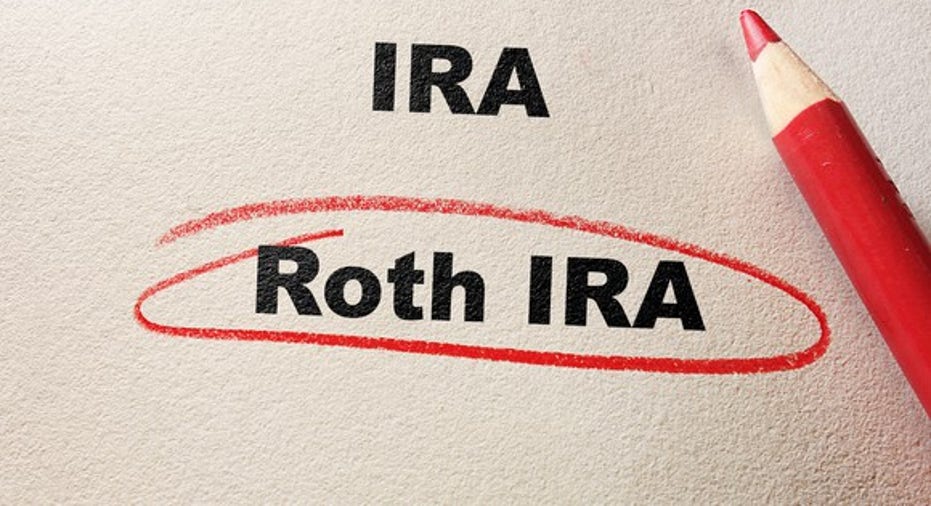Can I Roll Over My 401(k) Directly Into a Roth IRA?

When you leave a job, you have the right to take your 401(k) or other employer-sponsored retirement and roll it over to an IRA. Yet for many people, the 401(k) rollover is a first chance to move money into a Roth IRA. It used to be that you had to jump through some extra hoops to move 401(k) money into a Roth IRA, but more recent changes to the laws and regulation governing retirement savings have made it possible to do a Roth conversion with a traditional 401(k), 403(b), or other employer-sponsored retirement plan account directly. Moreover, with more 401(k) plans accepting after-tax Roth-style contributions, you might even be able to make the transfer to a Roth without paying taxes on the conversion.
When rollovers weren't available
In the past, retirement savers weren't able to make a rollover directly from a 401(k) plan to a Roth IRA. Prior to the passage of the Pension Protection Act of 2006, savers had to roll over their 401(k) assets to a traditional IRA. Then, if they were eligible, they could do a Roth conversion between their rollover IRA and the new Roth IRA. This made the transaction more complicated, and it also introduced some additional challenges for those who had contributed after-tax money to their 401(k) accounts.
Image source: Getty Images.
As of 2008, however, savers became eligible to roll over 401(k) assets directly into a Roth IRA as long as they were eligible for the Roth conversion. That became even more important in 2010, when income-based restrictions on Roth conversions went away. That left everyone in a position in which a direct rollover from a 401(k) to a Roth IRA was available.
What made 401(k)-to-Roth rollovers even better
Even after direct rollovers from 401(k)s to Roth IRAs became available, there were still some potential problem areas. In particular, if a saver had set aside after-tax money in a 401(k) -- something that became much more common when Roth 401(k) options became available for many employers -- then it introduced new tax implications for the rollover transaction.
An example makes this easier to see. Say you had a 401(k) that included $80,000 in traditional pre-tax contributions and $20,000 in Roth-style after-tax contributions. Under the previous rules, if you wanted to get that money into a Roth IRA, you would have had to pay taxes on the $80,000 in pre-tax money. If you rolled it over to a traditional IRA and then sought to convert $20,000, you could do so -- but you couldn't designate that the $20,000 in after-tax money be used for the conversion. Instead, the money was treated as taken pro rata from pre-tax and after-tax money -- forcing you to include $16,000 of the $20,000 conversion as taxable income.
The new rules, passed in 2014, allowed more favorable treatment. The saver could choose to roll over the 401(k) into two different IRAs, one traditional IRA to hold the pre-tax money and one Roth IRA to hold the after-tax money. The net result was a rollover with absolutely no immediate tax consequences that left the saver in exactly the same situation as before, with the same mix of pre-tax and after-tax retirement savings available in the IRA.
When conversion makes sense
Just because you can roll over money from a 401(k) to a Roth IRA doesn't mean that it's always a good idea. In general, if you're in a higher tax bracket now than you will be later in life, then a Roth conversion doesn't make as much sense. However, if you anticipating having low tax rates in the year in which you're rolling over your retirement money, then a direct rollover from your retirement plan account to a Roth IRA can make more sense.
Taking maximum advantage of your retirement money at work makes a lot of sense, but you have to be smart about your available options. By using the ability to roll over a 401(k) or other employer plan to a Roth IRA, you can sometimes put yourself in the best possible tax position going forward.
The $16,122 Social Security bonus most retirees completely overlook If you're like most Americans, you're a few years (or more) behind on your retirement savings. But a handful of little-known "Social Security secrets" could help ensure a boost in your retirement income. For example: one easy trick could pay you as much as $16,122 more... each year! Once you learn how to maximize your Social Security benefits, we think you could retire confidently with the peace of mind we're all after.Simply click here to discover how to learn more about these strategies.
The Motley Fool has a disclosure policy.



















